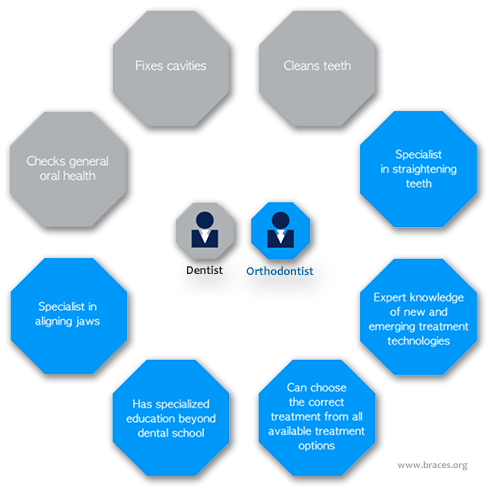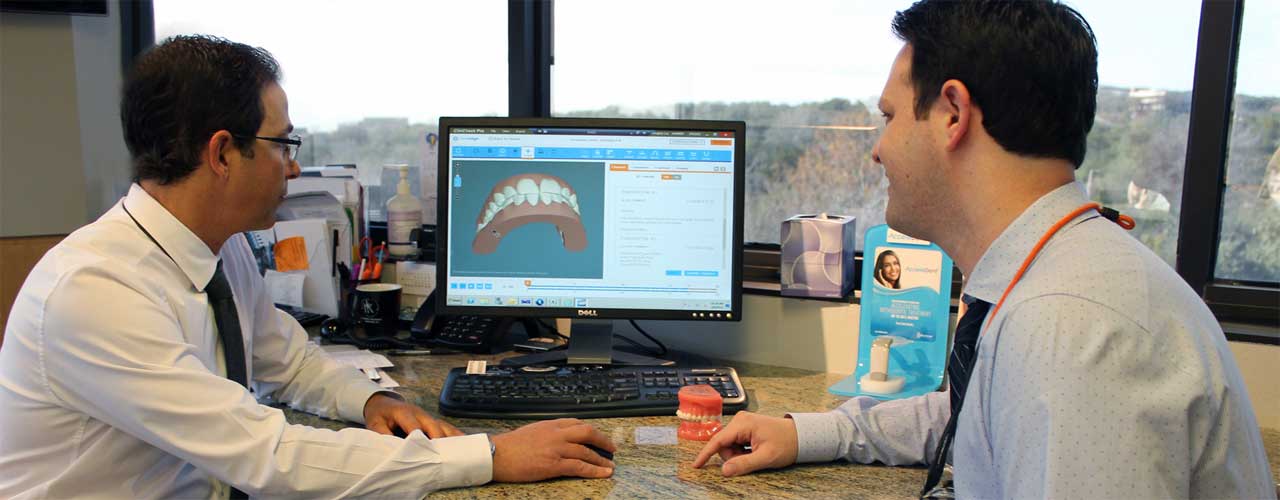Why you should choose a specialist to straighten your teeth.
"Sometimes your joy is the source of your smile, but sometimes your smile can be the source of your joy." -- Thich Nhat Hahn
Your smile should be considered one of your most valuable assets. Crooked and misaligned teeth are hard to clean and maintain. If left untreated your tooth condition may lead to tooth decay, gum disease, and eventual tooth loss. Many dentists now offer teeth straightening as one of their many services. While some types of misalignment of teeth could be handled by a general dentist, it can be difficult to determine if your particular case can be handled by your dentist. Most patients are glad that they sought out a 2nd opinion from a trained orthodontic specialist. Most people find the orthodontist's prescription more comprehensive with more options.

Most orthodontists offer free initial consultations. Ask any specialist what differentiates them from a general practitioner, and you will hear EXPERIENCE and RESULTS. Would you rather have work done by someone who knows how to place a vendor order or by someone that has handled your specific case, thousands of times?
Our smiles contribute to our self-esteem, self-confidence, and self-image. No matter what our age, straight teeth also help us bite, speak, and chew efficiently. Straight teeth and properly aligned jaws contribute to healthy teeth and gums and may alleviate or prevent physical health problems.
Some types of malocclusion are:
- Overbite
- Under bite
- Buck teeth
- Spacing or over crowding problems can cause impaction of other teeth
- Misplaced midline is the gap between the left side and right side of your bite
- Upper and lower front teeth don't overlap
- Upper teeth fit on wrong side of lower teeth
- Teeth are turned or out of position
- A tooth is in the wrong place
If left untreated, many orthodontic problems become worse and can require additional more complex dental procedures later in life. Abnormal wear of tooth surfaces, inefficient chewing or misalignment of the jaw joint can result from untreated conditions. Orthodontic treatment can correct these problems and help you achieve a healthy smile that will last your whole lifetime.
In comparing Orthodontists and Dentists you will find that the best practitioners, who want the best for their patients, refer patients to specialists. Each smile is as unique as the technique that was used to create it. Get the perfect smile by relying on an orthodontists' expertise, which comes from their extensive education. After graduating from dental school, orthodontists go on for another two or more years of education just in orthodontics at an accredited orthodontic residency program. During these additional years they specialize in orthodontic treatment and dentofacial orthopedics.
Very few of us are born with perfect teeth. There are many braces technologies available to the orthodontists that are not used by dentists. The right braces technology can be the difference between 18 months treatment time and less than 12.
How can I tell if my doctor is a certified orthodontist?
While it is true that general dentists can legally perform orthodontic treatment in their practice, they are not allowed to advertise as a specialist or claim to be an Orthodontist. Most get some minimal orthodontic training from a vendor in order to sell the specific vendor's type of appliance to their patients. One of the best ways to know if your doctor is a specialist is to find out how many orthodontic patients they have treated. Typical general dentists who are dabeling in orthodontics might treat up to 10 patients a year.
Most Orthodontists are members of the American Association of Orthodontists and will be happy to share their training qualifications with you. Invisalign Austing has treated over 8,000 orthodontic patients and county.

